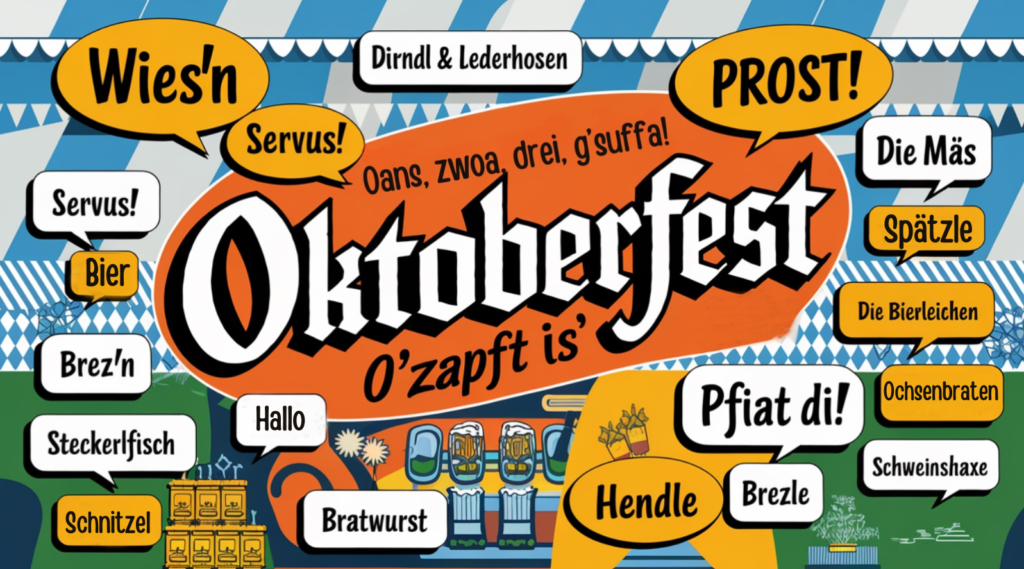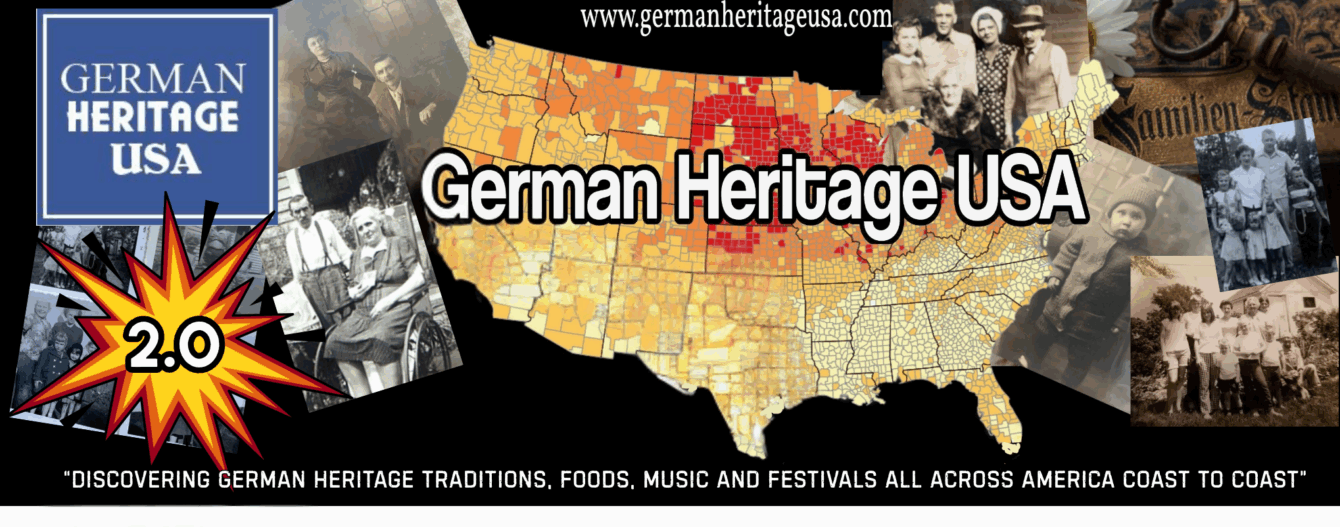The Oktoberfest Language – Top 15 Words & Phrases
Are you ready to dive into the vibrant language and culture of Oktoberfest? This world’s largest folk festival in Munich is a fun chance to explore Bavarian traditions. You’ll see traditional costumes, endless beer, sausages, and joy.
While many Germans speak English, knowing some German phrases can make your trip better. It will delight the locals and help you communicate.
 A vibrant Oktoberfest scene featuring traditional Bavarian elements, such as steins of beer, pretzels, and floral decorations, set against a backdrop of festive tents and lively crowds in traditional lederhosen and dirndls, with a color palette of rich golds, deep greens, and bright blues.
A vibrant Oktoberfest scene featuring traditional Bavarian elements, such as steins of beer, pretzels, and floral decorations, set against a backdrop of festive tents and lively crowds in traditional lederhosen and dirndls, with a color palette of rich golds, deep greens, and bright blues.
- Oktoberfest is a unique cultural event that celebrates Bavarian traditions and German language.
- Learning common German greetings, toasts, and food/drink orders can enhance your Oktoberfest experience.
- Understanding the nuances of Bavarian dialect and slang can help you connect with locals and navigate the festival with ease.
- Mastering essential German etiquette and conversation starters can help you make new friends at Oktoberfest.
- Embracing the spirit of “Gemütlichkeit” (coziness and conviviality) is key to fully immersing yourself in the Oktoberfest festivities.
Introduction to Oktoberfest
What is Oktoberfest?
Oktoberfest is the biggest folk festival in the world. It takes place every year in Munich, Germany. The festival lasts 16 to 18 days, starting in mid or late September and ending on the first Sunday of October.
It attracts over 6 million visitors from all over the globe each year.
The History of Oktoberfest
The first Oktoberfest was held on October 12, 1810. It was to celebrate the wedding of Prince Ludwig and Princess Therese of Saxony-Hildburghausen. The date was later changed to September to enjoy better weather.
The 2010 celebration marked the 200th anniversary of Oktoberfest.
Oktoberfest has grown from just horse racing to include carnival rides and merry-go-rounds. It now features ferris wheels and famous chicken roasters. Beer consumption has also skyrocketed, from 250,000 liters in 1810 to 6 million liters today.
